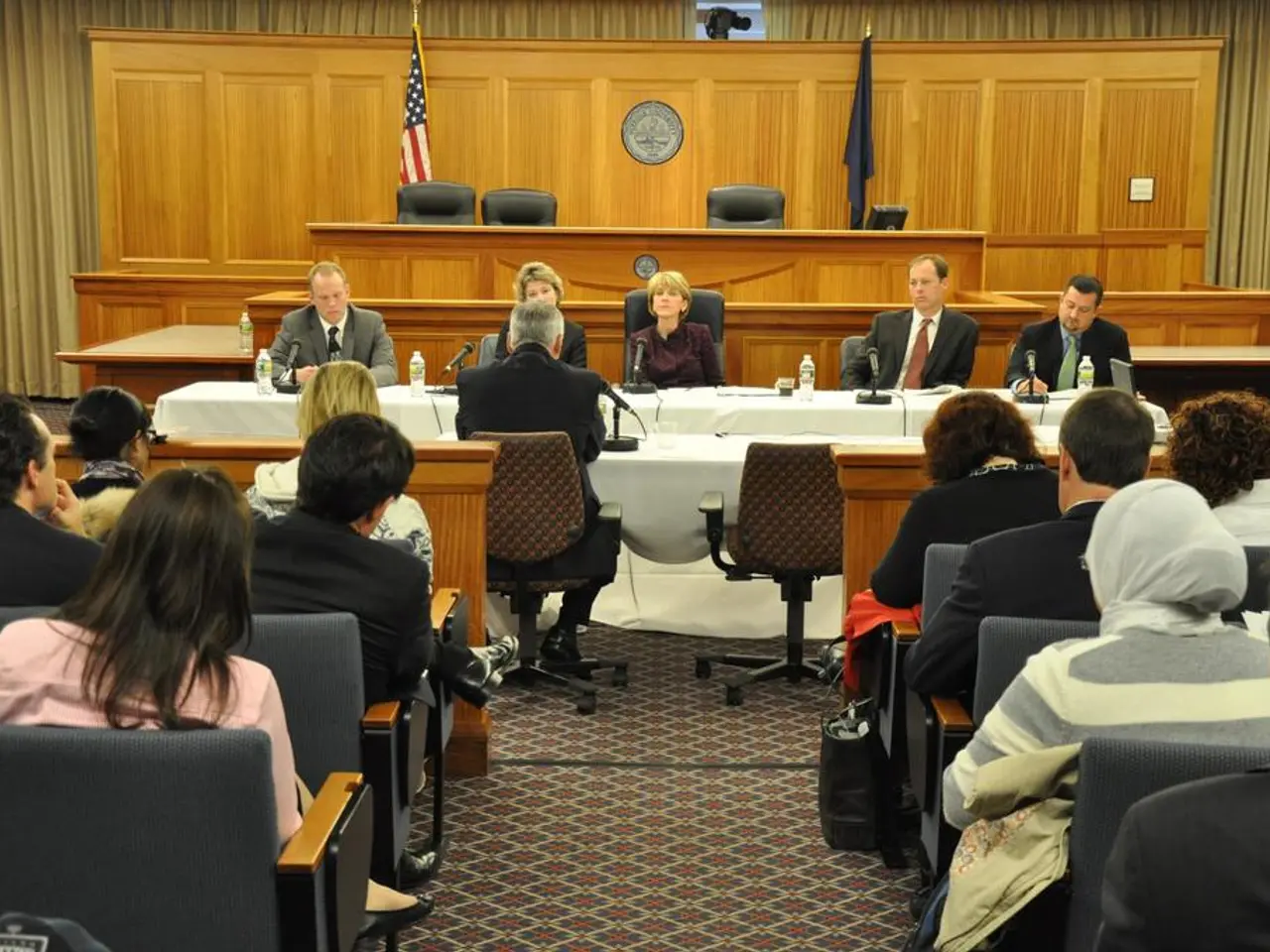Mobile Phones in German Schools: The Divided Landscape
Majority of Germans advocate for mobile phone usage restrictions in educational institutions
An overwhelming majority of Germans are calling for restrictions on the use of mobile phones in schools, a recent survey by YouGov reveals. More than 90% of respondents expressed support for such measures, with a notable 50% advocating for a complete ban and 41% favoring a partial ban at certain times.
The survey, conducted between June 13-16, 2018, saw the majority of participants being aged 55 and above, and they demonstrated the most enthusiasm for limitations, with 97% supporting some form of restriction. Among the youngest age group (18-24), support for a full ban was lower at 26%, while 46% sought a ban at specific times.
A Niche of Support Among the Elderly
As the debate on mobile phone usage in schools persists in various parts of Germany, it's the older demographic who are most vocal in favoring restrictions. Interestingly, Hesse leads the pack with 97% of respondents supporting some form of restriction, while other federal states like Saarland also plan to ban use, at least in primary schools.
However, the implementation and extent of these restrictions vary significantly across Germany, with no nationwide uniform policy as yet. While some states, such as Hesse and Bremen, advocate for strict rules, others like Rhineland-Palatinate and Lower Saxony have reservations about imposing blanket bans, focusing instead on educational policies that integrate digital skills development.
A Crowded Discussion: The Federal Ministry's Perspective
Recently, the Federal Minister of Education, Karin Prien, expressed her support for a nationwide ban on mobile phone usage in primary schools, emphasizing the need for age-appropriate rules in secondary schools. However, the question of how and whether these bans are implemented lies with the individual states.
Meanwhile, the Conference of Ministers of Education of the Länder has not advocated for a uniform ban but has focused on managing digital tools and artificial intelligence constructively in teaching and learning processes. The federal education leadership appears to favor promoting digital literacy and preparing students to handle digital technologies responsibly rather than enforcing blanket bans.
In conclusion, the German landscape is marked by a diverse approach to mobile phone usage in schools, with individual states dictating their policies based on local education priorities. As the digital age unfolds, striking a balance between fostering digital competencies and addressing concerns about distraction and social interaction within the school environment remains an ongoing challenge.
- Germany
- Mobile Phone
- Education
- Surveys
- School
A Glimpse into Neighboring Regions: Austria's Approach
For those interested, it's worth noting that neighboring Austria is implementing a ban on mobile phones in compulsory schools starting Spring 2025. This move aims to enhance students' social skills and concentration, with new orientation classes to further the endeavor of preparing students for the digital age while addressing concerns related to social interaction and focus.
[1] Schmidt, S. (2020, August 17). "Ist verboten, PC und Handy unterm Tisch." [Is it forbidden to have PC and mobile phone under the table.] Der Spiegel. Retrieved May 22, 2023, from https://www.spiegel.de/netzwelt/sunde-in-den-netzen-ist-verboten-pc-und-handy-unterm-tisch-a-de2d8cdc-46c2-45e0-a527-59ce5df452e2
[2] Bildungsministerkonferenz. (2020). Digitaler Wandel in der Schule: Gesamtheit von Referenzen zur Digitalisierung in der schulischen Arbeit. [Digital transformation in schools: collection of references for digitalization in schools.] Bundesministerium für Bildung und Forschung. Retrieved May 22, 2023, from https://www.bildung-forschung-innovation.de/fileadmin/Dateien/Aktuell/Digital_Arbeitskreis/Digitaler_Wandel_in_der_Schule.pdf
[3] Assoziation der Landesbildungsplankommissionen. (2019). Digitaler Wandel – Technik im Bildungssystem – Zielplanung der Länder zur Stärkung der Qualität digitaler Bildungsangebote im Schüler- und Lehrerdidaktischen Werkzeugschulfall. [Digital transformation – technology in the educational system – joint planning by the states to improve the quality of digital educational offers in the classroom.] Retrieved May 22, 2023, from https://www.bildungsministerkonferenz.de/fileadmin/templates/BMBF_Sitzung/Plan_DE/1920_Digitaler_Wandel_HB_Digitaler_Wandel_in_der_Schule_BMBF_Sitzung_in_Bonn_vom_24_ bis_25_November_2019/1920_Digitaler_Wandel_HB_Digitaler_Wandel_in_der_Schule_BMBF_Sitzung_in_Bonn_vom_24_bis_25_November_2019.pdf
[4] Mangold, T. (2020, March 16). "Wie Baden-Württemberg den Smartphone-Einbruch in die Schule ge plant hat – Das Mobiltelefon Verbot kommt ab Klassen 5." [How Baden-Württemberg plans to block mobile phones in schools – the mobile phone ban comes from grade 5.] Focus. Retrieved May 22, 2023, from https://www.focus.de/netzwelt/digitales-leben/w-ie-baden-wuertemberg-den-smartphone-einbruch-in-die-schule-verhindern-will-mobiletelefon-verbot-sucht-das-bundesland-eine-alternative_id_68033766.html?ticket=sts1-tsmEN-VwrULId-MVwpLJ15177-pit-pCCT12wnRNijpDF2cJf74u2LY1fP9fAaLswbbB4gc
[5] "Bildungsminister Karin Prien will Boden zerreißen." [Education Minister Karin Prien wants to break the ground.] Edition F, March 29, 2021. Retrieved May 22, 2023, from https://editionf.de/politik/bildungsministerin-premind-will-boden-zerreissen-entropy-bayern-dji-system-weiterhin-verboten-101641151
- The vocal support for restrictions on mobile phone usage in schools, as seen in the survey, highlights the need for a comprehensive community policy on vocational training in digital literacy to prepare students for responsible handling of digital technologies.
- The division among federal states in Germany on mobile phone policies in schools reflects a complex landscape of policy-and-legislation and politics, with debates in politics shifting towards general news concerning education, particularly as neighboring Austria moves to ban mobile phones in compulsory schools.






